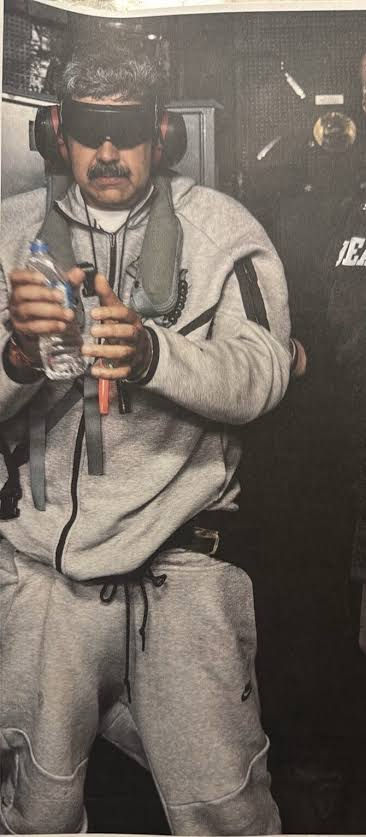What are the peace proposals for the war in Ukraine?
- Sebastian Palacios.

- Feb 17, 2023
- 4 min read
Updated: Feb 18, 2023
In December 2021, Putin issued a threat to the West asking for security guarantees. This happened two years after Zelensky changed the Constitution of Ukraine to end its neutrality status on international conflicts by aiming to join NATO, and when the civil war in east Ukraine between pro-Russian separatists and the government of Kiev was escalating. The demands were the following:
•A ban on Ukraine, or any other eastern country (Moldavia mainly) from entering NATO.
•Retreat of all NATO troops and weapons deployed to countries that entered the alliance after 1997. That would have included much of Eastern Europe, like former communist Poland, Estonia, Lithuania, Latvia, and the Balkans.
•To not perform military exercises in countries that have a border with Russia without previous authorization from the Kremlin.
•An agreement between Moscow and Washington about putting short and medium-range missile systems out of reach from each other. Thus, Russia was asking to restart the previous intermediate-range nuclear forces (INF) treaty that the US left in 2018 with Trump as president.
Moscow said ignoring these demands would lead to a “military response” similar to the Cuban missile crisis of 1962, and Vladimir Putin demanded the west to provide Russia “legal guarantees” for its security taking into account that NATO was expanding eastwards. Western capitals responded that many points of this 'ultimatum' were "non-negotiable starters'', as those represented an attempt to formalize a new Russian imperial sphere of influence in east Europe. Moreover, those countries had endured a long process of achieving a detachment from Moscow and instead were very happy to be included as western allies. NATO responded formally by saying that "it is up to Ukraine and any other country to decide if it wants to be part of NATO, and that the alliance does not accept red lines from anybody, not even Russia".
Then, three months later, Putin launched its full-scale invasion. This has caused around 100,000 soldiers on each side being killed, same for 50,000 Ukrainian civilians, a humanitarian and economic disaster spilling internationally, and making the world to be very close from WW3. As a reaction to that, several peace proposals have being formulated in order to stop this dangerous escalation:
1) The latest one coming from Russia in December 2022 is that before talks begin, "Kiev must accept the new reality", and recognize the Russian annexation of Crimea and the four regions of Luhansk, Donetsk, Zaporizhia, and Kherson that it only partially controls currently. Then, actual talks about stopping military action could begin, according to Russia.
The Kremlin has created an 'Orwellian' logic in which Ukrainian troops now occupy Russian land, and that Russia is currently not fighting only against 'Nazi Ukraine', but also against NATO. In one of his speeches last month, Putin stated that "this is a battle for Russia’s existential survival, but it is our destiny, as Russians are made for war".
2) President Zelensky traveled recently to Washington D.C, London and Paris to ask for more weapons and financial aid. He made it clear that Ukraine will not start peace talks with Russia as long as Vladimir Putin sits in power and "the only language the Kremlin understands is the one of weapons. Russia must be defeated on the battlefield".
He also repeated that his demands for peace include the full withdrawal of all Russian troops from all territories that belonged to Ukraine in 1991, including Crimea, war reparations, release of all prisoners of war, return of deported Ukrainians, establishment of a special international tribunal to prosecute Russian war crimes, and security guarantees for Ukraine with a NATO membership or by multilateral agreements. Zelensky's proposal is based upon basic principles of international law, and the western leaders have stated that they "share and support completely the objectives of Ukraine with this peace plan".
3) Elon Musk presented last year a peace proposal stating that Ukraine should remain neutral in the future, and a referendum organized by the United Nations would define the destiny of east Ukraine and Crimea. If the people of those regions wanted to be part of Russia, the voting results should be respected, but if not, Russia will promise not to interfere ever again in the internal affairs there. The proposal was praised by the Kremlin, anti-NATO movements in the western world, and by many developing countries in Africa and Asia that have strong commercial and political ties with Moscow.
The argument in favor of this deal is that borders of many states around the world were not meant to be designed perfectly from the beginning and that annexations would 'fit better the ethnic and political differences that have existed in Ukraine since 1991'. The arguments against it are that this will violate international law on territorial integrity, setting a dangerous precedent for the future, and technically it would be very difficult to organize a representative referendum in regions with many displaced people.
4) The Minsk agreements signed in 2015 that gave eastern regions of Ukraine more autonomy are now rejected both by Russia (new reality of annexed territories and referendums), and Ukraine (Russia has invaded the country), because both countries do not trust each other anymore.
Russia accuses the West of having used these agreements to win time to arm Ukraine (something acknowledged by Angela Merkel herself in a recent interview), whereas Kiev says Russia will never truly respect staying out of their internal affairs.
With all these conditions in place, it seems that the only way to settle this issue will be in the battlefield, as it has happened many times before in human history.








Comments